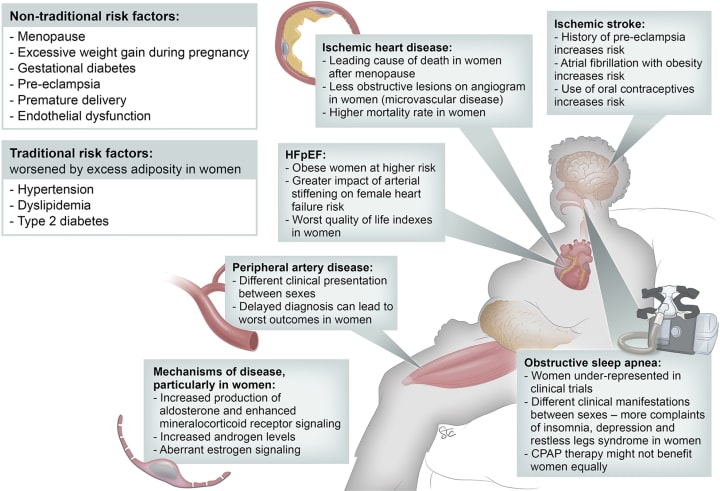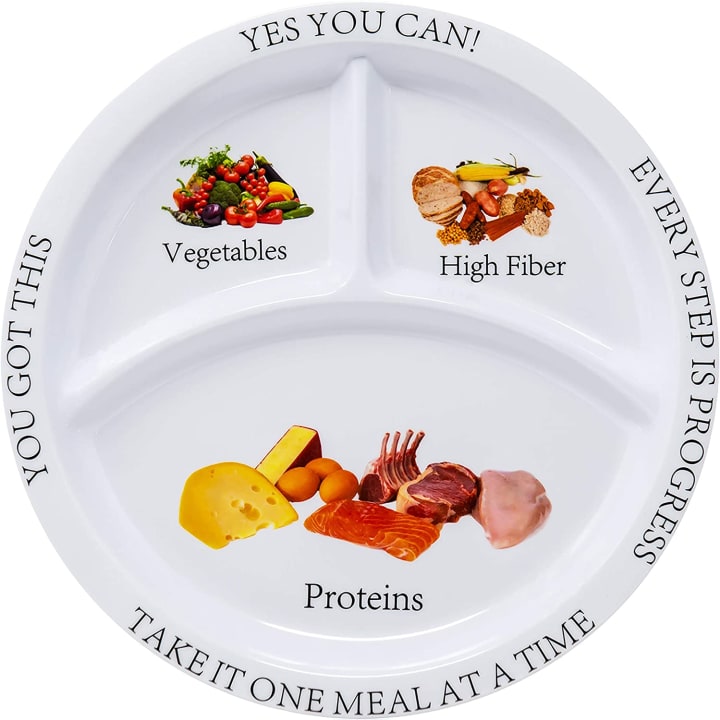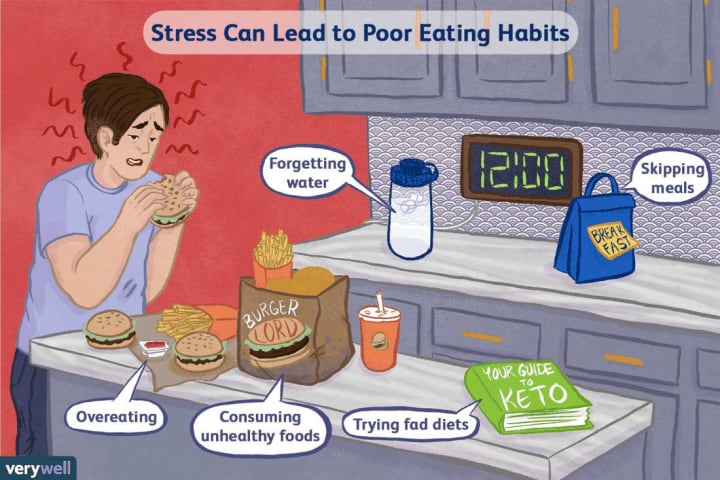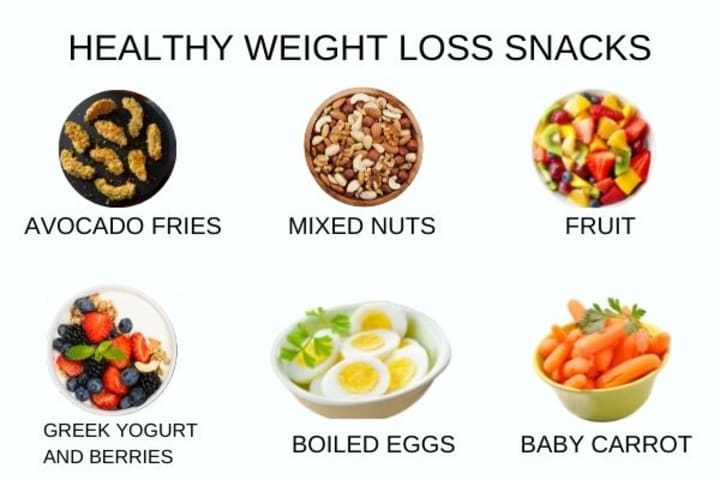
Intro...
Overweight and obesity have become major health concerns globally, affecting millions of individuals across all age groups. These conditions not only impact one's physical appearance but also pose significant risks to overall health and well-being. However, the good news is that overweight and obesity can be managed effectively through lifestyle modifications, a balanced diet, and regular exercise. In this blog, we will delve into the intricacies of these issues and provide practical health tips to promote a healthier life.
Understanding Overweight and Obesity

Overweight and obesity are defined as abnormal or excessive fat accumulation that may impair health. They are typically measured using the body mass index (BMI), which is calculated by dividing an individual's weight (in kilograms) by the square of their height (in meters). A BMI of 25 to 29.9 is considered overweight, while a BMI of 30 or higher falls into the obese category.
The Health Risks Associated with Overweight and Obesity
Carrying excess weight significantly increases the risk of developing various health conditions, including:

1. Cardiovascular diseases: Obesity contributes to the development of heart disease, high blood pressure, and stroke.
2. Type 2 diabetes: Being overweight or obese increases the likelihood of developing insulin resistance and type 2 diabetes.
3. Joint problems: Excessive weight puts additional stress on the joints, leading to conditions such as osteoarthritis.
4. Respiratory issues: Obesity can impair lung function and increase the risk of sleep apnea and asthma.
5. Mental health disorders: Overweight and obesity can contribute to depression, low self-esteem, and body image issues.
Health Tips for Overweight and Obesity
1. Adopt a Balanced Diet: A healthy diet is crucial for managing weight. Include a variety of fruits, vegetables, whole grains, lean proteins, and healthy fats in your meals. Limit the consumption of processed foods, sugary drinks, and high-calorie snacks.

2. Portion Control: Be mindful of portion sizes to avoid overeating. Use smaller plates and bowls, and take the time to savor your meals. Listen to your body's hunger and fullness cues.

3. Regular Exercise: Engage in regular physical activity to burn calories and improve overall fitness. Aim for at least 150 minutes of moderate-intensity aerobic exercise per week, along with strength training exercises. Find activities you enjoy, such as walking, cycling, swimming, or dancing.

4. Stay Hydrated: Drink an adequate amount of water throughout the day to support metabolism, control appetite, and maintain overall health. Replace sugary drinks with water, herbal teas, or infused water for added flavor.

5. Reduce Sedentary Behavior: Limit the amount of time spent sitting or lying down. Incorporate more movement into your daily routine, such as taking short walks during breaks, using stairs instead of elevators, or standing while talking on the phone.

6. Get Sufficient Sleep: Aim for 7-8 hours of quality sleep each night. Poor sleep patterns can disrupt hormones related to appetite control, leading to weight gain.

7. Manage Stress: Chronic stress can contribute to overeating and weight gain. Practice stress-management techniques like deep breathing exercises, meditation, yoga, or engaging in hobbies you enjoy.

8. Seek Support: Consider joining a support group or working with a healthcare professional who specializes in weight management. Having a support system can provide guidance, motivation, and accountability.

9. Set Realistic Goals: Focus on making sustainable lifestyle changes rather than aiming for quick fixes. Set achievable goals and celebrate your progress along the way.

10. Practice Mindful Eating: Pay attention to your body's hunger and fullness cues. Eat slowly, savoring each bite, and chew your food thoroughly. This allows your brain to register when you're satisfied, preventing overeating. Avoid distractions while eating, such as watching TV or using electronic devices, as they can lead to mindless consumption.

11. Increase Fiber Intake: Include high-fiber foods like fruits, vegetables, whole grains, legumes, and nuts in your diet. Fiber helps you feel fuller for longer, aids in digestion, and promotes healthy weight management. Aim for at least 25-30 grams of fiber per day.

12. Limit Sugary and Processed Foods: Sugary drinks, desserts, and processed foods are high in empty calories and offer little nutritional value. Minimize their consumption and opt for healthier alternatives like fresh fruits, homemade snacks, and natural sweeteners like honey or dates.

13. Plan and Prepare Meals: Take the time to plan your meals in advance, as it helps you make healthier choices and prevents impulsive eating. Prepare meals at home using fresh ingredients, as it gives you control over portion sizes and the quality of ingredients used.

14. Healthy Snacking: Choose nutritious snacks like raw vegetables, fruits, Greek yogurt, or a handful of nuts. These options provide essential nutrients and help curb cravings between meals. Avoid keeping unhealthy snacks readily available at home.

15. Hygiene and Food Safety: Pay attention to food hygiene and safety practices to prevent foodborne illnesses. Wash your hands thoroughly before handling food, cook food at the appropriate temperatures, and store leftovers properly to avoid spoilage.

16. Stay Consistent: Consistency is key when it comes to managing weight and maintaining a healthy lifestyle. Make sustainable changes that you can maintain in the long term rather than resorting to temporary diets or extreme measures.

17. Celebrate Non-Scale Victories: Don't solely focus on the number on the scale. Celebrate non-scale victories, such as increased energy levels, improved mood, better sleep, and enhanced physical fitness. These achievements are equally important indicators of progress.

18. Practice Self-Care: Take care of your overall well-being by prioritizing self-care. Engage in activities that bring you joy, reduce stress levels, and promote relaxation. This may include hobbies, spending time with loved ones, getting a massage, or practicing mindfulness and meditation.

19. Stay Motivated and Positive: Stay motivated on your weight management journey by setting realistic goals, tracking your progress, and celebrating milestones. Surround yourself with a positive support system that encourages and uplifts you.

20. Regular Check-ups: Schedule regular check-ups with your healthcare provider to monitor your weight, assess your overall health, and address any concerns or questions you may have. They can provide personalized guidance and support.

Remember, each person's journey towards a healthier weight and lifestyle is unique. Be kind to yourself, stay committed to your goals, and embrace the positive changes you make along the way. With determination, patience, and the right strategies, you can overcome overweight and obesity and enjoy a healthier, more fulfilling life.
In a Nutshell...
Overweight and obesity are complex issues that require a holistic approach to manage effectively. By adopting healthy habits, including a balanced diet, regular exercise, and practicing mindful eating, it is possible to achieve and maintain a healthy weight. Remember, every step towards a healthier lifestyle counts, so be patient and consistent. Embrace the journey towards a balanced and fulfilling life, where your well-being takes center stage.






Comments
There are no comments for this story
Be the first to respond and start the conversation.